Indigenous Governance Database
NNI and Harvard Project Research

Social and Economic Consequences of Indian Gaming in Oklahoma
Much has been written in the mainstream press about Indian gaming and its impact on Indian and non-Indian communities. The debate, however, tends to be focused on Class III or “casino-style” gaming. The effects of Class II gaming have largely been overlooked by the press and, unfortunately, by the…
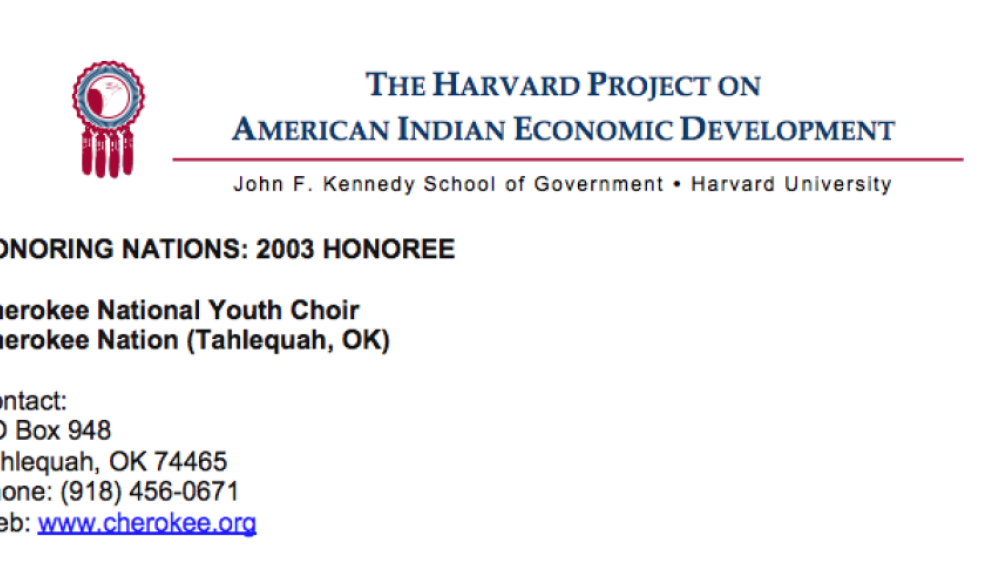
Cherokee National Youth Choir
The Youth Choir presents an innovative approach to promoting and encouraging the use of the endangered Cherokee language among its youth while also instilling Cherokee cultural pride. The award-winning choir — comprised of 40 young Cherokee ambassadors — has performed in venues across the US,…
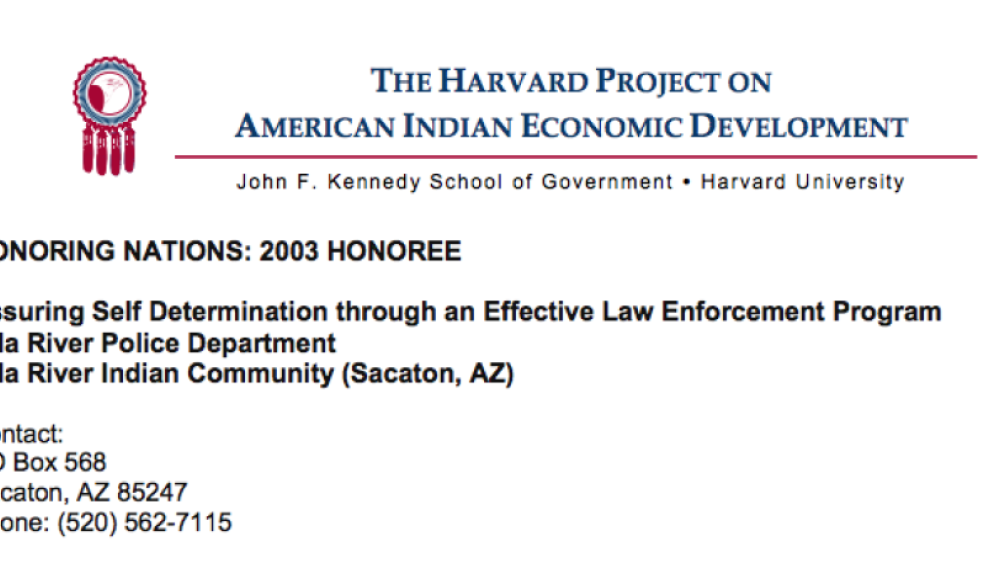
Gila River Law Enforcement Program
Serving a population of 17,000, the 92-employee Gila River Police Department operates a multifaceted law enforcement program that includes community-based policing, neighborhood block watch programs, a citizen’s police academy, and bike patrols. Since assuming control over law enforcement in 1998,…
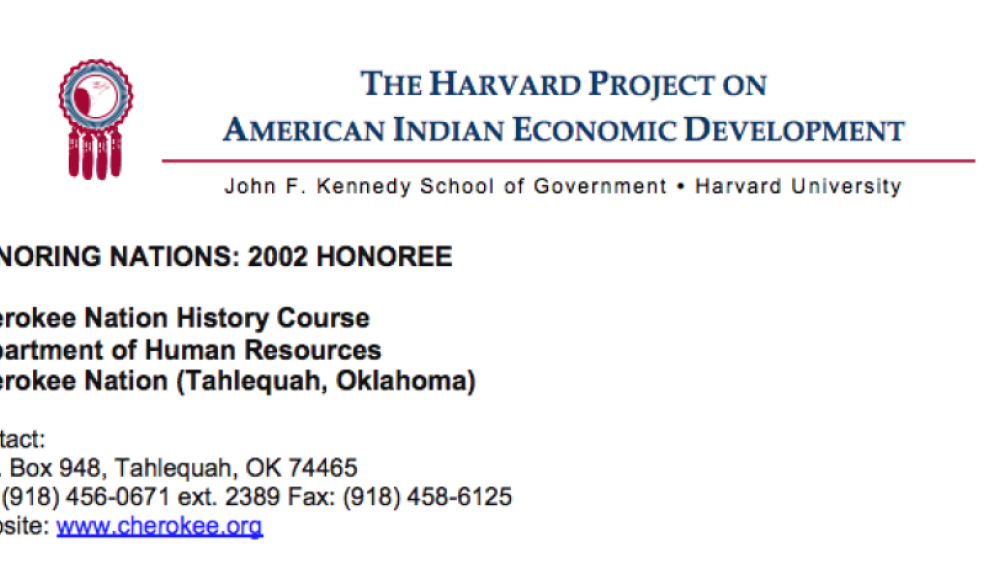
Cherokee Nation History Course
Launched in 2000, the Cherokee Nation History Course is a free, 40-hour, college-level study offered to 1,800 tribal employees and members of Cherokee communities. Through lectures, discussions, case exercises, and role-playing, the course teaches Cherokee history, culture, and government to both…
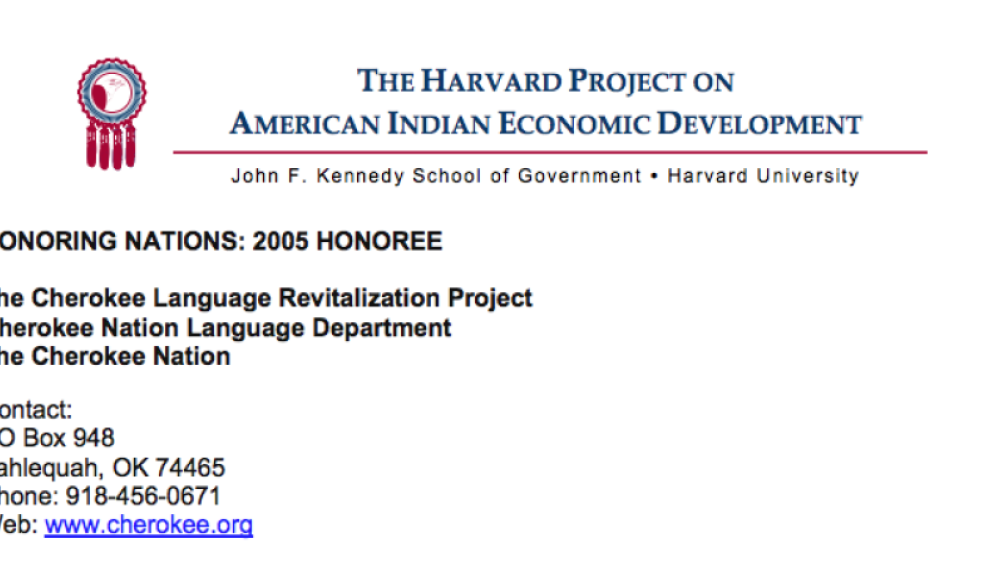
Cherokee Language Revitalization Project
In 2002, the Cherokee Nation carried out a survey of its population and found no fluent Cherokee speakers under the age of 40. The Cherokee Principal Chief declared a "state of emergency," and the Nation acted accordingly. With great focus and determination, it launched a multi-faceted initiative…
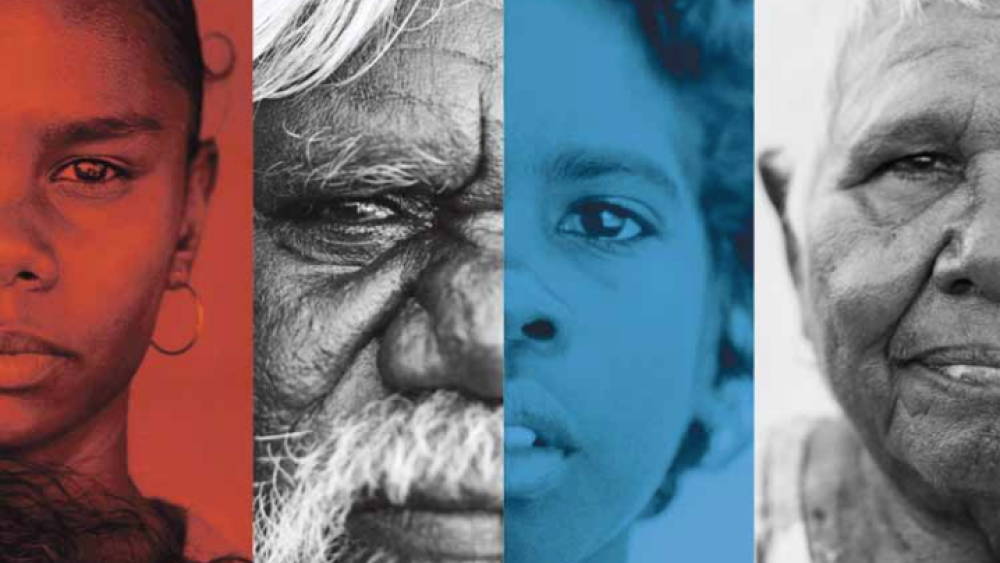
Can Australia follow Obama's lead?
This article was prompted by US President Barack Obama’s recent commitment to effectively empower American Indian nations to re-build their own decision-making capability. The President recognises that genuine self-determination is not only good public policy but is essential for…
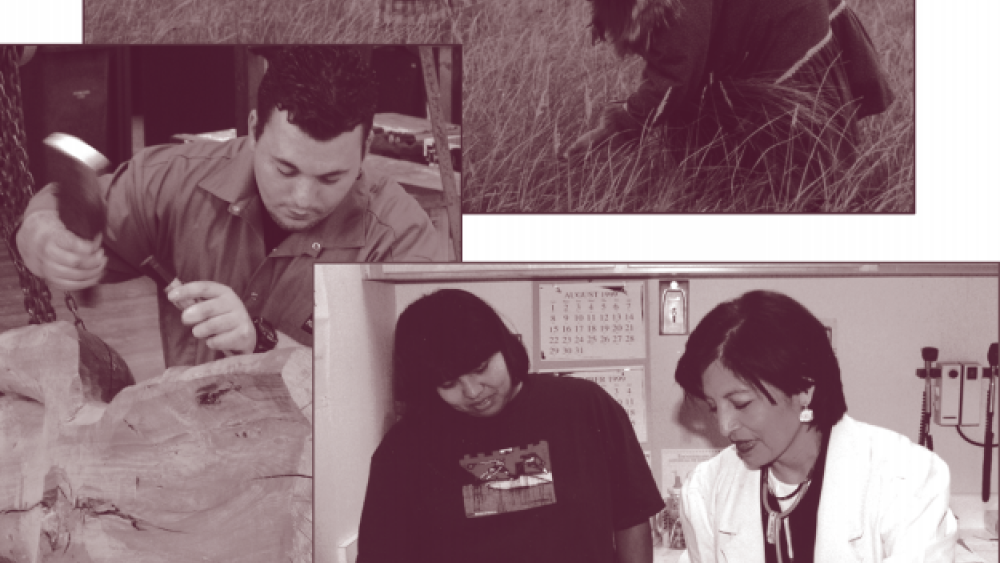
Indigenous Peoples, Poverty and Self-Determination in Australia, New Zealand, Canada and the United States
Australia, New Zealand, Canada and the United States are among the world’s wealthiest nations. It is an often noted irony–and an occasional source of embarrassment to the governments of these countries–that the Indigenous peoples within their borders are in each case among their poorest citizens.
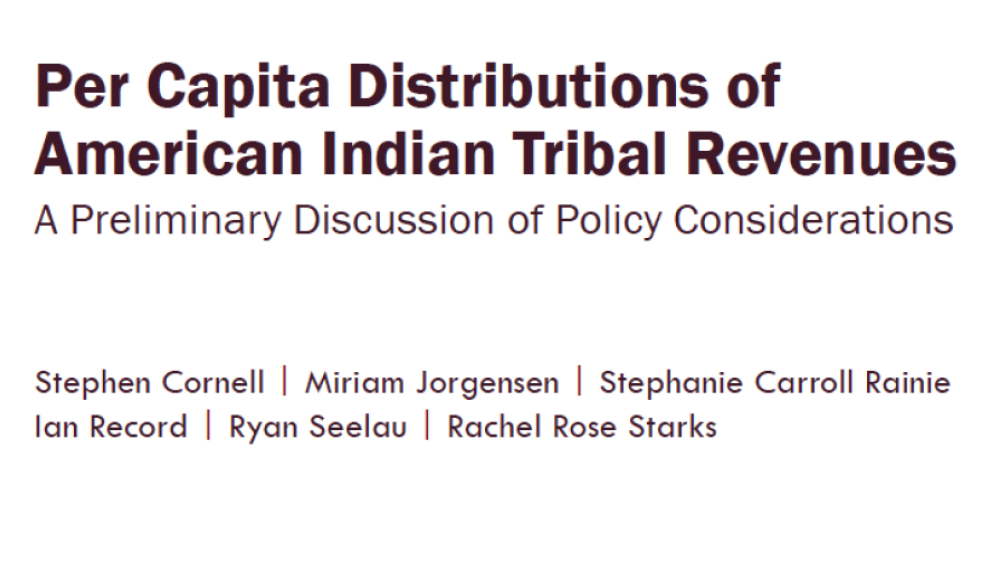
Per Capita Distributions of American Indian Tribal Revenues: A Preliminary Discussion of Policy Considerations
This paper examines policy considerations relevant to per capita distributions of tribal revenues. It offers Native nation leaders and citizens food for thought as they consider whether or not to issue per capita payments and, if they choose to do so, how to structure the distribution of funds and…
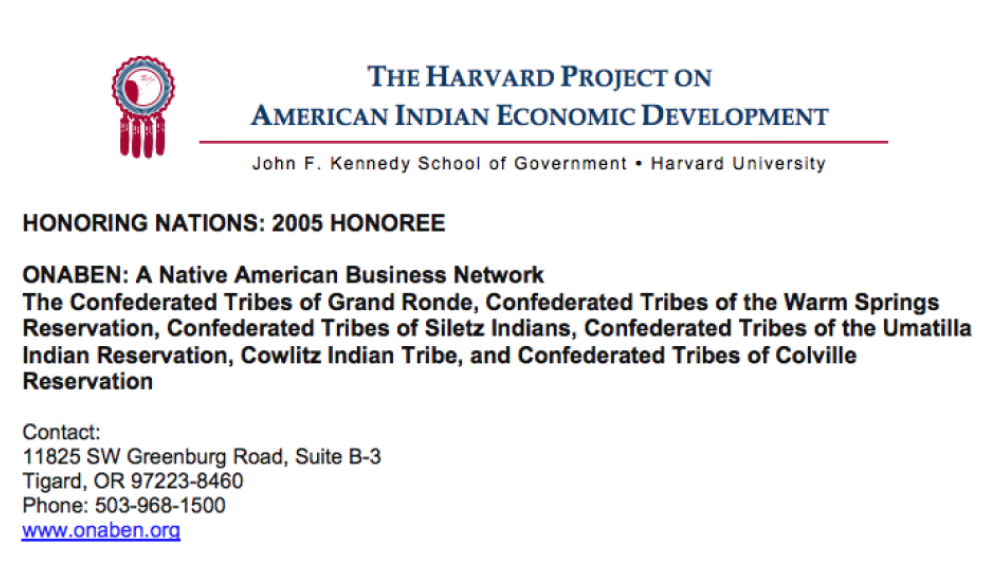
ONABEN: A Native American Business and Entrepreneurial Network
Founded by a consortium of Native nations in the Pacific Northwest, ONABEN's mission is to increase self-reliance by promoting the development of tribal-citizen-owned small businesses and the diversification of reservation economies. ONABEN's programs provide financial counseling, business…
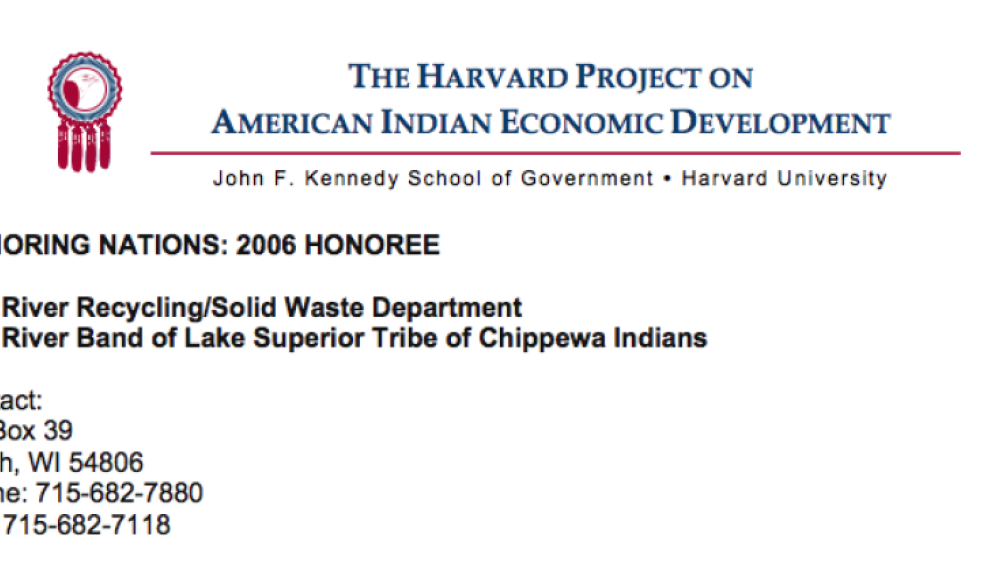
Bad River Recycling/Solid Waste Department
The Bad River Recycling/Solid Waste Department created environmentally sound practices of managing and disposing of waste generated on the reservation, ending cycles of harm to tribal citizens, lands, and water. Historically, waste was not only hazardous, but noticeable and abundant on reservation…
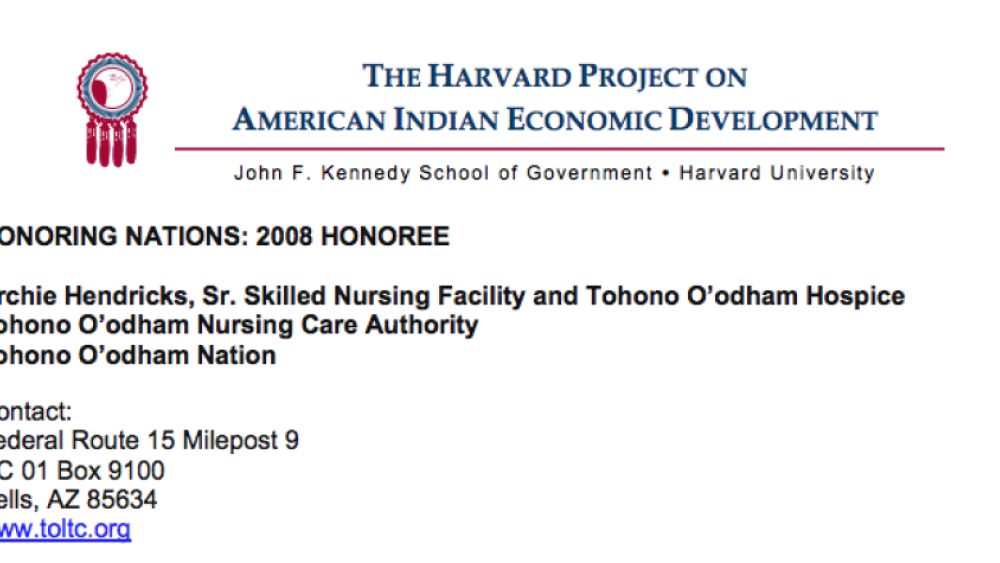
Archie Hendricks, Sr. Skilled Nursing Facility and Tohono O'odham Hospice
For decades Tohono O’odham elders in need of skilled nursing had to move far away from family and friends to receive care, or stay home and forgo long-term care services. However, with the opening of the Archie Hendricks, Sr. Skilled Nursing Facility, O’odham elders can now remain in the community…

Borrego Springs Bank of the Viejas Band
The first American Indian-owned bank in California, the Borrego Springs Bank (BSB) offers a full range of services to tribal governments and Native-owned businesses in order to facilitate the entrepreneurial growth of American Indian tribes. With more than $74 million in assets and two full service…
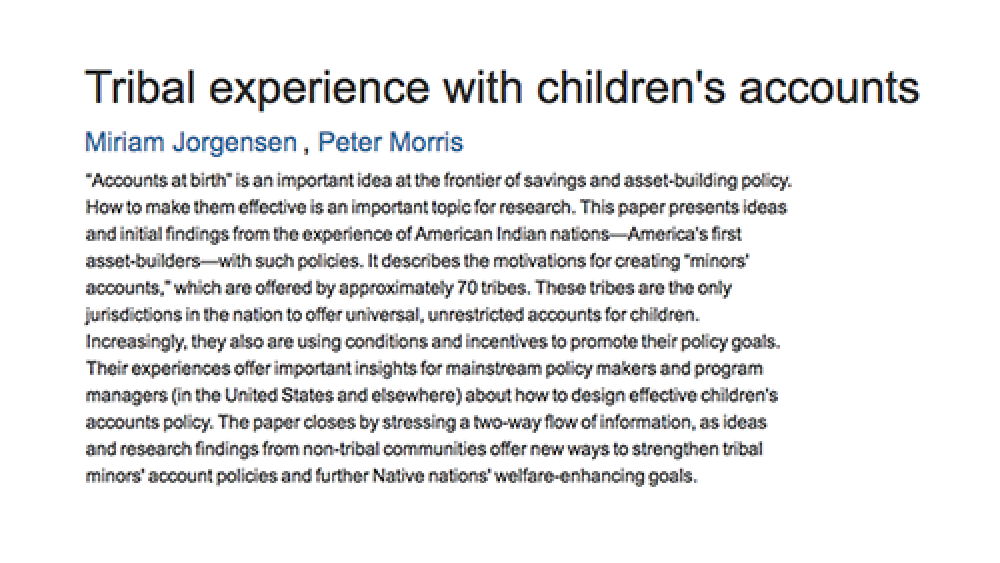
Tribal experience with children's accounts
“Accounts at birth” is an important idea at the frontier of savings and asset-building policy. How to make them effective is an important topic for research. This paper presents ideas and initial findings from the experience of American Indian nations–America's first asset-builders–with such…
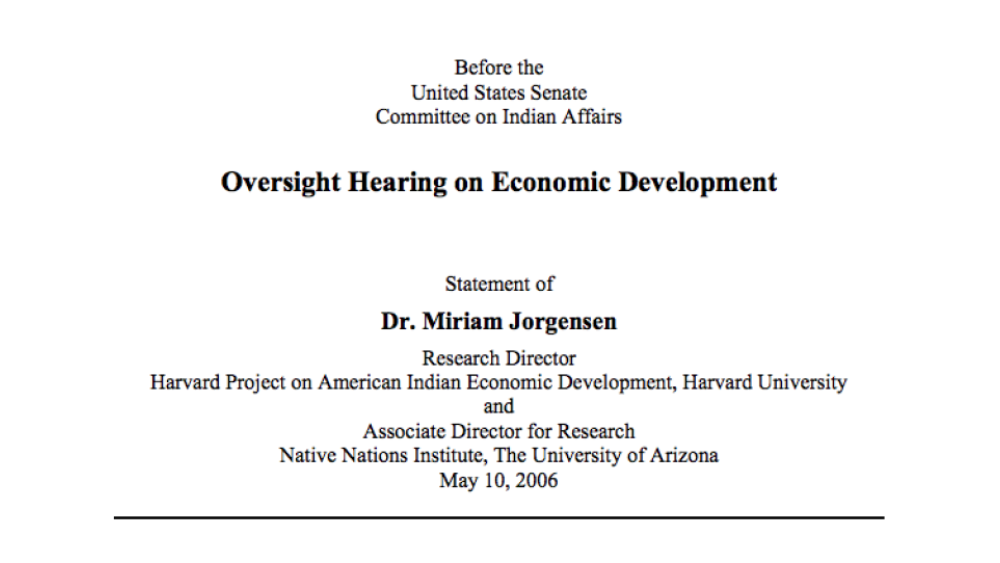
Statement before the United States Senate Committee on Indian Affairs Oversight Hearing on Economic Development
Why is it that, amidst the well-documented and widespread poverty and social distress that characterize American Indian reservations overall, an increasing number of Native nations are breaking old patterns and building economies, social institutions, and political systems that work? What explains…
Pagination
- First page
- …
- 6
- 7
- 8
- …
